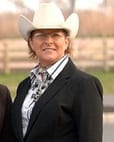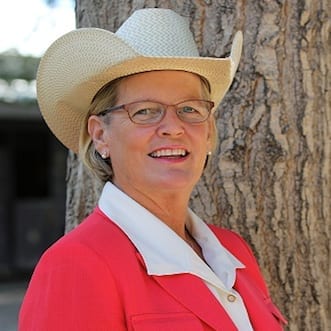We were recently approached with the question of why professional horsemen do not have an organized union. It was pointed out to us that musicians and actors have the same type of lifestyle as a horse trainer; they don’t work typical 9 to 5 hours and few have steady work and guaranteed pay. Yet musicians and actors have organized unions. Some people might say that is the purpose of the AQHA Professional Horsemen’s Association for example, but many point out that it is not utilized for those purposes.
According the New Webster’s Dictionary a union is defined as, “an organized association of workers formed to protect and further their rights and interests.” Actors have the SAG/AFTRA union which states on their website that, “It is committed to organizing all work done under our jurisdictions; negotiating the best wages, working conditions, and health and pension benefits; preserving and expanding members’ work opportunities; vigorously enforcing our contracts; and protecting members against unauthorized use of their work.”
For musicians, The American Federation of Musicians of the United States and Canada is the largest organization in the world dedicated to representing the interests of professional musicians. According to their site, “As an AFM member, you are part of a membership of more than 90,000 musicians. The AFM can negotiate agreements and administer contracts, procure valuable benefits and achieve legislative goals. No single musician has that power.”
There is the argument that there is strength in numbers. Do professionals in our industry need to band together and form a union? It is a controversial and complicated issue partly due to the diverse political affiliations in the horse business. Also, many industry professionals choose to work with horses because of the lifestyle and freedoms it represents. On the other hand, many people believe it is these freedoms and no safeguards that cause many of the problems in our industry.
GoHorseShow wanted to know the thoughts of trainers and professional horseman in our industry about this polarizing topic. Read their interesting perspectives and let us know what you think by commenting below.
 Kellie Egkan-Hinely–I think that we do have an Association that help give guidelines and recommendations of how we conduct business. It is the AQHA Professional Horsemen’s Association. As far as a new organized association, I worry that a committee or an organization would take away individual ability to think and grow. It would stop progress of how individual trainers have ideas to improve the industry and their horses. If we become content knowing that there is an organization or union to “fall back on” we may not try as hard to improve, follow ethical conduct rules, and think outside of the normal box.
Kellie Egkan-Hinely–I think that we do have an Association that help give guidelines and recommendations of how we conduct business. It is the AQHA Professional Horsemen’s Association. As far as a new organized association, I worry that a committee or an organization would take away individual ability to think and grow. It would stop progress of how individual trainers have ideas to improve the industry and their horses. If we become content knowing that there is an organization or union to “fall back on” we may not try as hard to improve, follow ethical conduct rules, and think outside of the normal box.
 Tammy Denlinger–Lickliter–A fantastic idea, it’s sad to think we have no vote in the decisions that ultimately affect our future and frustrating to think those decisions are being made by people we know nothing about. It appears that some of the decisions are made for the good of the association not for the people who support it.
Tammy Denlinger–Lickliter–A fantastic idea, it’s sad to think we have no vote in the decisions that ultimately affect our future and frustrating to think those decisions are being made by people we know nothing about. It appears that some of the decisions are made for the good of the association not for the people who support it.
 Chelsea Carlson–I believe an organized association to back up and protect the rights of horse trainers is a great idea. Although I’m unsure how it would work, I believe if a group could make it happen it would be beneficial to this industry. As a young trainer getting into a business I’m so passionate about, I appreciate the guidance of veteran professionals that have offered advice when I’ve found some areas of this industry challenging. With multimedia being a huge factor in how our careers/jobs are portrayed, an association might just be the thing to level the playing field for trainers and open the door for the younger generation. From day to day we put a lot on the line, and it should be time for there to finally be some solid ground to stand on.
Chelsea Carlson–I believe an organized association to back up and protect the rights of horse trainers is a great idea. Although I’m unsure how it would work, I believe if a group could make it happen it would be beneficial to this industry. As a young trainer getting into a business I’m so passionate about, I appreciate the guidance of veteran professionals that have offered advice when I’ve found some areas of this industry challenging. With multimedia being a huge factor in how our careers/jobs are portrayed, an association might just be the thing to level the playing field for trainers and open the door for the younger generation. From day to day we put a lot on the line, and it should be time for there to finally be some solid ground to stand on.
 Charlie Cole–They have one … The Professional Horseman’s Association. It’s just not used to the full capacity.
Charlie Cole–They have one … The Professional Horseman’s Association. It’s just not used to the full capacity.
 Michael Damianos–I don’t think trainers need unions. Horse training is a business. Like any business one must be prepared before starting out. In addition to techniques in training and exhibition of horses one must understand public relations, promotion, communication skills, marketing, legal exposure, people skills, social media etiquette, etc. Trainers need resources for all these areas. A professional organization that gives trainers access to information in these and other areas as well as provide affordable legal consultation and services would be of great benefit. An organization that focuses on education and information would be of benefit.
Michael Damianos–I don’t think trainers need unions. Horse training is a business. Like any business one must be prepared before starting out. In addition to techniques in training and exhibition of horses one must understand public relations, promotion, communication skills, marketing, legal exposure, people skills, social media etiquette, etc. Trainers need resources for all these areas. A professional organization that gives trainers access to information in these and other areas as well as provide affordable legal consultation and services would be of great benefit. An organization that focuses on education and information would be of benefit.
 Julie Harnish–I believe the benefits of strength to purchase and negotiate would be wonderful. Better rates for insurance, negotiate or protect from lawsuits. It also might be nice to legitimize the experience and skills of a trainer without just hanging out a shingle and being a “trainer”. An association is great a union is unnecessary. However, I believe this must work both ways and the other is to make the trainer accountable for the money they charge and the resulting work they do. In many industries if we step outside the acceptable behavior or job requirements we are fired. There is no worry about our ability to limit our income. We are held accountable for a job description and ethical behavior. Currently there is little of that in the industry and thus some take advantage of this.
Julie Harnish–I believe the benefits of strength to purchase and negotiate would be wonderful. Better rates for insurance, negotiate or protect from lawsuits. It also might be nice to legitimize the experience and skills of a trainer without just hanging out a shingle and being a “trainer”. An association is great a union is unnecessary. However, I believe this must work both ways and the other is to make the trainer accountable for the money they charge and the resulting work they do. In many industries if we step outside the acceptable behavior or job requirements we are fired. There is no worry about our ability to limit our income. We are held accountable for a job description and ethical behavior. Currently there is little of that in the industry and thus some take advantage of this.
 Reid Thomas–I would say no. I believe we each operate independently within in our industry and are responsible to represent ourselves or hire council to do so when/if the circumstance arises. I think continuing to educate, being active within breed associations, and promote the welfare of the animal would be time-better-spent, rather than adding more red tape to cut.
Reid Thomas–I would say no. I believe we each operate independently within in our industry and are responsible to represent ourselves or hire council to do so when/if the circumstance arises. I think continuing to educate, being active within breed associations, and promote the welfare of the animal would be time-better-spent, rather than adding more red tape to cut.
 Karen Evans Mundy–Well when you say “union” that scares me, and in what way would that help? If trainers think they could have a voice, that is what being on a committee is for, but it really doesn’t matter what the committees recommend, the AQHA Executive Committee has the final say.
Karen Evans Mundy–Well when you say “union” that scares me, and in what way would that help? If trainers think they could have a voice, that is what being on a committee is for, but it really doesn’t matter what the committees recommend, the AQHA Executive Committee has the final say.
 Tina Price–I think trainers and professional horsemen as a whole are sorely under represented in the over all horse industry. Not only as far as the rules and laws governing the associations, but in the overall, day to day practice of their craft. I think young trainers starting out often fall victim to the more established professionals and many never recover professionally. As a whole, we are also vulnerable to devastating injury/death and there is little protection offered. I would consider an organization that protected it’s members interests and outlined proper business conduct of those members to be highly positive. I would like to see the interests of the equine professionals represented to our associations and in state and national government when new laws might affect our profession and our animals.
Tina Price–I think trainers and professional horsemen as a whole are sorely under represented in the over all horse industry. Not only as far as the rules and laws governing the associations, but in the overall, day to day practice of their craft. I think young trainers starting out often fall victim to the more established professionals and many never recover professionally. As a whole, we are also vulnerable to devastating injury/death and there is little protection offered. I would consider an organization that protected it’s members interests and outlined proper business conduct of those members to be highly positive. I would like to see the interests of the equine professionals represented to our associations and in state and national government when new laws might affect our profession and our animals.
 Kathryn Kope–The question was do they need an organized association/union. I think sometimes a strong association has more freedom of choice than a union does. I belong to a union at work. There seems to be a lot of negotiating but very little change. Since trainers are not regulated by a work contract, who would they be negotiating with and for what? Teachers negotiate with school districts (their employers) for things like better pay, shorter hours, improvements in health insurance. Horse trainers are self employed. They already control all of those aspects of their lives. In order to unionize, you first need to be held accountable or be employed by some association or group. The United States does not regulate or license horse trainers the way they do in England. Trainers now have many freedoms. If the government chooses to regulate them, then perhaps a union would be in their best interests. Bargaining power only comes after regulation. Do they want less freedoms?
Kathryn Kope–The question was do they need an organized association/union. I think sometimes a strong association has more freedom of choice than a union does. I belong to a union at work. There seems to be a lot of negotiating but very little change. Since trainers are not regulated by a work contract, who would they be negotiating with and for what? Teachers negotiate with school districts (their employers) for things like better pay, shorter hours, improvements in health insurance. Horse trainers are self employed. They already control all of those aspects of their lives. In order to unionize, you first need to be held accountable or be employed by some association or group. The United States does not regulate or license horse trainers the way they do in England. Trainers now have many freedoms. If the government chooses to regulate them, then perhaps a union would be in their best interests. Bargaining power only comes after regulation. Do they want less freedoms?
 Holly Hover— Let me just put it this way. I am a conservative Republican–organized unions make all of my departed relatives roll over and over in their graves! No vote for me.
Holly Hover— Let me just put it this way. I am a conservative Republican–organized unions make all of my departed relatives roll over and over in their graves! No vote for me.
 Sid Griffith–Yes, I have felt this was necessary for some time. I feel that it is especially important so that horseman may have an opportunity to receive improved healthcare, insurance, retirement, and a collective voice on relevant political issues pertaining to horsemen and the industry.
Sid Griffith–Yes, I have felt this was necessary for some time. I feel that it is especially important so that horseman may have an opportunity to receive improved healthcare, insurance, retirement, and a collective voice on relevant political issues pertaining to horsemen and the industry.
 Bill Kaven–There is always power in numbers and if the horse community could ban together and agree on such an organization it could benefit everyone. I for one think it would be great if we had disability coverage for getting hurt while performing your job. Too many professionals do not have adequate insurance coverage because they can’t afford it.
Bill Kaven–There is always power in numbers and if the horse community could ban together and agree on such an organization it could benefit everyone. I for one think it would be great if we had disability coverage for getting hurt while performing your job. Too many professionals do not have adequate insurance coverage because they can’t afford it.
 Blake Carney–I’ve never thought about it honestly. Personally, I like to keep to myself, do my own thing etc. Most trainers seem to kind of have their own style and run their businesses very differently, whereas most associations/unions have a more set way of doing things. It wouldn’t be something I would be interested in.
Blake Carney–I’ve never thought about it honestly. Personally, I like to keep to myself, do my own thing etc. Most trainers seem to kind of have their own style and run their businesses very differently, whereas most associations/unions have a more set way of doing things. It wouldn’t be something I would be interested in.
So, what do you think? Vote in our poll and leave a comment on our Facebook Page or in comments section at the bottom of this article.








